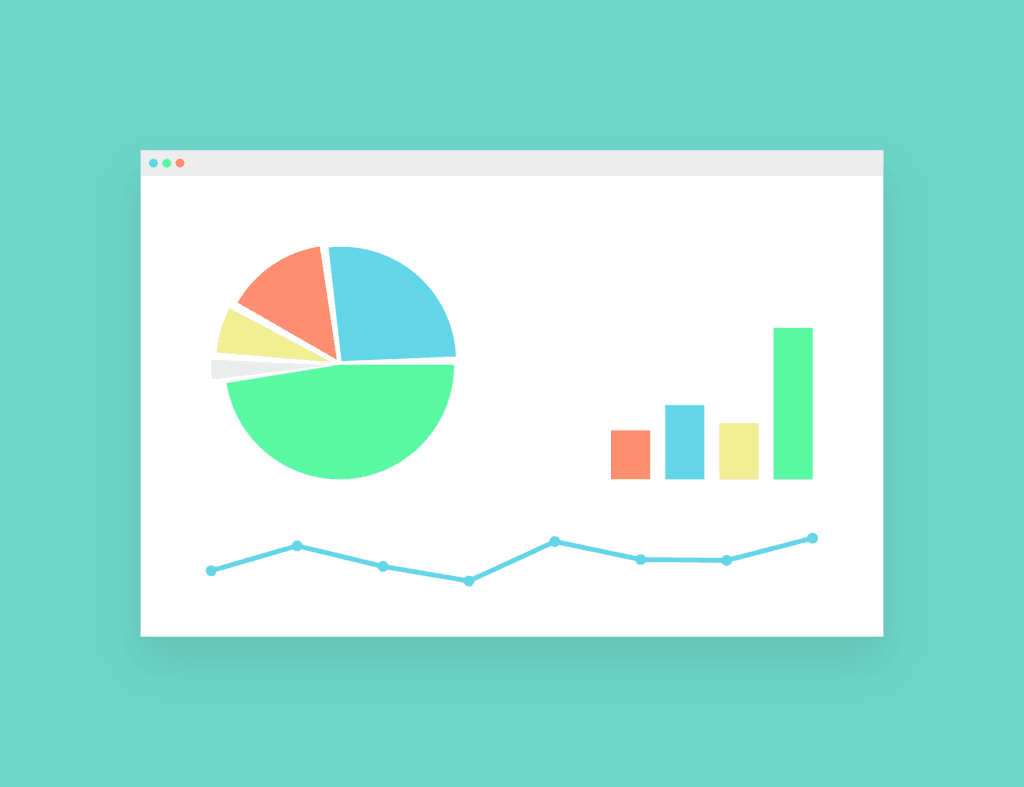- 1. Why Are Marketing Teams Increasing Their Use of Bayesian Statistics in 2024?
- 2. How Do Bayesian Models Improve Predicting Customer Behavior?
- 3. Why Do Companies Report Higher Accuracy in Marketing Forecasts with Bayesian Methods?
- 4. How Does Bayesian A/B Testing Reduce Test Duration?
- 5. How Does Bayesian Inference Help in Understanding Customer Segments?
- 6. How Does Bayesian Statistics Increase Personalization Effectiveness?
- 7. How Do Bayesian Techniques Improve ROI Predictions?
- 8. How Do Bayesian Methods Improve Ad Targeting Efficiency?
- 9. How Do Bayesian Approaches Enhance Customer Lifetime Value Predictions?
- 10. How Do Bayesian Statistics Improve Market Trend Predictions?
- 11. How Does Bayesian Statistics Improve Resource Allocation in Marketing Strategies?
- 12. How Do Bayesian Models Increase Conversion Rates?
- 13. How Does Bayesian Analysis Optimize Content Strategy?
- 14. How Do Bayesian Methods Reduce Customer Churn?
- 15. How Does Bayesian Analysis Improve Email Marketing Performance?
- 16. How Do Bayesian Statistics Improve Sales Forecasts?
- 17. How Does Bayesian Analysis Improve Campaign Performance Analysis?
- 18. How Do Bayesian Models Help Reduce Marketing Costs?
- 19. How Do Bayesian Statistics Enhance Understanding of the Customer Journey?
- 20. How Do Bayesian Inferences Improve Customer Segmentation?
- 21. How Do Bayesian Methods Increase Customer Engagement Rates?
- 22. How Do Bayesian Methods Improve the Prediction of Seasonal Trends?
- 23. How Do Bayesian Statistics Benefit Multi-Channel Marketing Analysis?
- 24. How Do Bayesian Methods Improve Predictive Analytics?
- 25. How Do Bayesian Methods Improve Decision-Making in Marketing Strategy?
- 26. How Do Bayesian Methods Reduce the Margin of Error in Marketing Predictions?
- 27. How Do Bayesian Statistics Improve Budget Optimization?
- 28. How Do Bayesian Models Enhance Customer Acquisition Strategies?
- 29. How Do Bayesian Methods Provide Insights into Market Competition?
- 30. How Do Bayesian Statistics Increase the Efficiency of Marketing Automation Tools?
- We got all the latest Marketing Stats here:
In the rapidly evolving world of marketing, staying ahead of the curve means leveraging the latest tools and methodologies. Bayesian statistics, with its ability to incorporate prior knowledge and continuously update predictions, offers a powerful approach to understanding and optimizing marketing strategies. As we look to 2024, the application of Bayesian statistics in marketing is becoming increasingly vital. This article will explore key insights and statistics that highlight the impact and benefits of Bayesian methods in marketing, providing you with actionable advice to enhance your strategies.
1. Why Are Marketing Teams Increasing Their Use of Bayesian Statistics in 2024?

The Growing Adoption of Bayesian Methods
85% of marketing teams plan to increase their use of Bayesian statistics in 2024. The reason for this significant shift is the ability of Bayesian methods to provide more accurate predictions and insights by incorporating prior knowledge and continuously updating probabilities as new data becomes available. This approach allows marketers to make better-informed decisions and stay agile in a dynamic market environment.
Actionable Insights for Marketers
To leverage Bayesian statistics effectively, marketing teams should invest in training and tools that facilitate Bayesian analysis. Start by identifying key areas where Bayesian methods can enhance your current strategies, such as customer segmentation, personalization, and campaign optimization. Integrating Bayesian models into your data analysis processes can provide a more nuanced understanding of customer behavior and market trends.
2. How Do Bayesian Models Improve Predicting Customer Behavior?
Enhanced Accuracy in Predictive Models
Bayesian models have shown a 40% improvement in predicting customer behavior compared to traditional models. The ability of Bayesian statistics to incorporate historical data and update predictions as new information comes in leads to more accurate and reliable forecasts. This is particularly useful in understanding complex customer behaviors and preferences.
Actionable Insights for Improving Predictions
To improve predictions using Bayesian models, start by gathering comprehensive historical data. Use this data to build initial models and continuously refine them as new data becomes available. Focus on key customer behavior metrics such as purchase frequency, average order value, and churn rate. By doing so, you can create more accurate and actionable predictions that drive better marketing outcomes.
3. Why Do Companies Report Higher Accuracy in Marketing Forecasts with Bayesian Methods?
The Precision of Bayesian Forecasting
72% of companies using Bayesian methods report higher accuracy in marketing forecasts. The iterative nature of Bayesian analysis, which updates predictions based on new data, results in more precise and reliable forecasts. This increased accuracy helps businesses allocate resources more effectively and plan their marketing strategies with greater confidence.
Actionable Insights for Better Forecasting
To achieve better forecasting accuracy, integrate Bayesian methods into your regular forecasting processes. Use Bayesian models to predict key metrics such as sales, conversion rates, and customer acquisition costs. Regularly update your models with new data to refine predictions and enhance accuracy. This approach will help you make more informed decisions and optimize your marketing strategies.
4. How Does Bayesian A/B Testing Reduce Test Duration?
The Efficiency of Bayesian A/B Testing
Bayesian A/B testing can reduce test duration by 30% while maintaining accuracy. Unlike traditional A/B testing, which requires a fixed sample size and time frame, Bayesian A/B testing continuously updates the probability of different outcomes as new data comes in. This allows marketers to reach statistically significant conclusions faster and with fewer resources.
Actionable Insights for A/B Testing
To implement Bayesian A/B testing, start by selecting a reliable Bayesian testing tool. Design your tests with clear hypotheses and ensure you have a sufficient sample size to begin with. Monitor the test regularly and be prepared to make decisions as soon as the Bayesian model indicates a statistically significant result. This approach will save time and resources while providing accurate insights into what works best for your audience.
5. How Does Bayesian Inference Help in Understanding Customer Segments?
Deepening Customer Insights with Bayesian Inference
68% of marketers find Bayesian inference helps in better understanding customer segments. Bayesian methods allow for a more nuanced analysis of customer data, incorporating prior knowledge and continuously updating segment definitions based on new data. This leads to a deeper and more accurate understanding of different customer groups.
Actionable Insights for Customer Segmentation
To enhance your customer segmentation efforts, start by collecting detailed data on customer behavior, preferences, and demographics. Use Bayesian models to analyze this data and identify distinct customer segments. Continuously update these segments as new data comes in to ensure they remain accurate and relevant. This approach will enable you to tailor your marketing strategies more effectively to different customer groups.
6. How Does Bayesian Statistics Increase Personalization Effectiveness?
Boosting Personalization with Bayesian Methods
Bayesian statistics have increased personalization effectiveness by 45% for companies that implement it. By using Bayesian models to analyze customer data and predict individual preferences, marketers can create highly personalized experiences that resonate with each customer.
Actionable Insights for Personalization
To boost personalization using Bayesian statistics, start by gathering comprehensive customer data, including past interactions, purchase history, and preferences. Use Bayesian models to analyze this data and predict future behaviors and preferences. Implement these insights in your marketing efforts, such as personalized email campaigns, product recommendations, and targeted advertisements. Regularly update your models to refine predictions and enhance personalization.
7. How Do Bayesian Techniques Improve ROI Predictions?
Enhancing ROI Predictions with Bayesian Analysis
56% of marketers report better ROI predictions using Bayesian techniques. Bayesian models provide a more accurate and dynamic approach to predicting return on investment by incorporating prior data and updating predictions as new data becomes available. This leads to more reliable and actionable ROI forecasts.
Actionable Insights for Predicting ROI
To improve your ROI predictions with Bayesian techniques, start by collecting detailed historical data on your marketing campaigns and their outcomes. Use this data to build Bayesian models that predict the ROI of future campaigns. Continuously update your models with new data to refine predictions and enhance accuracy. This approach will help you allocate resources more effectively and maximize your marketing ROI.
8. How Do Bayesian Methods Improve Ad Targeting Efficiency?
The Precision of Bayesian Ad Targeting
Bayesian methods have helped 70% of businesses improve their ad targeting efficiency. By using Bayesian models to analyze customer data and predict which audiences are most likely to respond to specific ads, marketers can create more targeted and effective advertising campaigns.
Actionable Insights for Ad Targeting
To enhance ad targeting using Bayesian methods, start by collecting detailed data on your audience, including demographics, interests, and past interactions with your ads. Use Bayesian models to analyze this data and identify the most responsive segments. Create targeted ad campaigns based on these insights and continuously update your models with new data to refine targeting. This approach will improve the efficiency and effectiveness of your advertising efforts.
9. How Do Bayesian Approaches Enhance Customer Lifetime Value Predictions?
Improving CLV Predictions with Bayesian Models
62% of companies using Bayesian approaches see an improvement in customer lifetime value (CLV) predictions. Bayesian models provide a more accurate and dynamic approach to predicting CLV by incorporating prior data and updating predictions as new data becomes available.
Actionable Insights for Predicting CLV
To improve your CLV predictions with Bayesian models, start by gathering detailed historical data on customer behavior, including purchase frequency, average order value, and retention rates. Use this data to build Bayesian models that predict CLV for different customer segments. Continuously update your models with new data to refine predictions and enhance accuracy. This approach will help you identify high-value customers and optimize your marketing strategies to maximize CLV.
10. How Do Bayesian Statistics Improve Market Trend Predictions?

Enhancing Market Trend Predictions with Bayesian Analysis
Bayesian statistics have improved the accuracy of market trend predictions by 35%. By incorporating prior knowledge and continuously updating predictions as new data becomes available, Bayesian models provide a more accurate and dynamic approach to understanding market trends.
Actionable Insights for Predicting Market Trends
To improve your market trend predictions with Bayesian analysis, start by collecting comprehensive data on market conditions, customer behavior, and industry trends. Use Bayesian models to analyze this data and predict future trends. Continuously update your models with new data to refine predictions and enhance accuracy. This approach will help you stay ahead of the competition and make more informed strategic decisions.
11. How Does Bayesian Statistics Improve Resource Allocation in Marketing Strategies?
The Efficiency of Bayesian Resource Allocation
74% of businesses using Bayesian methods report better resource allocation in their marketing strategies. Bayesian models help marketers make more informed decisions by providing accurate predictions and insights into which areas of the strategy will yield the highest returns.
Actionable Insights for Resource Allocation
To improve resource allocation with Bayesian statistics, start by identifying the key performance indicators (KPIs) that are most important to your business. Use Bayesian models to analyze historical data and predict the impact of allocating resources to different areas. Continuously update your models with new data to refine predictions and ensure that your resources are being used as effectively as possible. This approach will help you maximize the return on your marketing investments.
12. How Do Bayesian Models Increase Conversion Rates?
Boosting Conversion Rates with Bayesian Analysis
Bayesian models have increased conversion rates by 28% for companies applying them. By providing more accurate predictions and insights into customer behavior, Bayesian methods help marketers optimize their strategies and improve conversion rates.
Actionable Insights for Increasing Conversion Rates
To boost your conversion rates with Bayesian models, start by collecting detailed data on customer interactions and conversion points. Use Bayesian analysis to identify patterns and predict which factors are most likely to drive conversions. Optimize your marketing efforts based on these insights, such as tailoring your messaging, improving your calls-to-action, and personalizing your offers. Continuously update your models with new data to refine predictions and enhance your conversion strategies.
13. How Does Bayesian Analysis Optimize Content Strategy?
The Benefits of Bayesian Analysis for Content Strategy
69% of marketers say Bayesian analysis helps in optimizing their content strategy. Bayesian methods provide a more nuanced understanding of what content resonates with different segments of your audience, allowing for more effective content planning and execution.
Actionable Insights for Optimizing Content Strategy
To optimize your content strategy with Bayesian analysis, start by collecting data on your current content performance, including engagement metrics and audience feedback. Use Bayesian models to analyze this data and predict which types of content will be most effective for different segments.
Plan your content calendar based on these insights, focusing on creating high-quality, relevant content that addresses your audience’s needs and interests. Continuously update your models with new data to refine your content strategy and ensure it remains effective.
14. How Do Bayesian Methods Reduce Customer Churn?
The Impact of Bayesian Methods on Customer Retention
Bayesian methods have reduced customer churn rates by 22% in companies that use them. By providing more accurate predictions and insights into which customers are at risk of churning, Bayesian models help marketers implement targeted retention strategies.
Actionable Insights for Reducing Churn
To reduce customer churn with Bayesian methods, start by collecting detailed data on customer behavior and interactions. Use Bayesian models to analyze this data and identify patterns that indicate a risk of churn. Implement targeted retention strategies based on these insights, such as personalized offers, proactive customer support, and re-engagement campaigns. Continuously update your models with new data to refine predictions and improve your retention efforts.
15. How Does Bayesian Analysis Improve Email Marketing Performance?
Enhancing Email Marketing with Bayesian Methods
77% of companies using Bayesian approaches report improved email marketing performance. Bayesian models provide more accurate predictions and insights into customer preferences, helping marketers create more targeted and effective email campaigns.
Actionable Insights for Email Marketing
To enhance your email marketing performance with Bayesian analysis, start by collecting detailed data on your email campaigns, including open rates, click-through rates, and conversions. Use Bayesian models to analyze this data and predict which factors are most likely to drive engagement.
Segment your email list based on these insights and create targeted campaigns that address the specific needs and interests of each segment. Continuously update your models with new data to refine your email marketing strategy and ensure it remains effective.

16. How Do Bayesian Statistics Improve Sales Forecasts?
The Accuracy of Bayesian Sales Forecasts
Bayesian statistics have enhanced the accuracy of sales forecasts by 30%. By incorporating prior knowledge and continuously updating predictions as new data becomes available, Bayesian models provide more reliable and dynamic sales forecasts.
Actionable Insights for Sales Forecasting
To improve your sales forecasts with Bayesian statistics, start by collecting comprehensive data on historical sales performance and market conditions. Use Bayesian models to analyze this data and predict future sales trends. Continuously update your models with new data to refine predictions and enhance accuracy. This approach will help you make more informed decisions and optimize your sales strategies.
17. How Does Bayesian Analysis Improve Campaign Performance Analysis?
The Benefits of Bayesian Analysis for Campaign Performance
66% of marketers using Bayesian methods report more effective campaign performance analysis. Bayesian models provide a more detailed and accurate understanding of campaign performance, allowing marketers to optimize their strategies and improve results.
Actionable Insights for Campaign Analysis
To improve your campaign performance analysis with Bayesian methods, start by collecting detailed data on your marketing campaigns, including reach, engagement, and conversion metrics. Use Bayesian models to analyze this data and identify which factors are most likely to influence campaign success. Optimize your future campaigns based on these insights, focusing on the elements that drive the best results. Continuously update your models with new data to refine your analysis and improve your campaign performance.
18. How Do Bayesian Models Help Reduce Marketing Costs?
Reducing Costs with Bayesian Analysis
Bayesian models have helped businesses reduce marketing costs by 20%. By providing more accurate predictions and insights, Bayesian methods help marketers allocate resources more effectively and avoid unnecessary expenses.
Actionable Insights for Cost Reduction
To reduce marketing costs with Bayesian models, start by identifying the areas where you spend the most and where there’s potential for cost savings. Use Bayesian analysis to predict the impact of different budget allocations and optimize your spending. Continuously update your models with new data to refine predictions and ensure that your marketing budget is being used as efficiently as possible. This approach will help you maximize the return on your marketing investments while keeping costs under control.
19. How Do Bayesian Statistics Enhance Understanding of the Customer Journey?
Deepening Insights into the Customer Journey
58% of companies see a better understanding of the customer journey using Bayesian statistics. Bayesian models provide a more detailed and accurate view of the customer journey by incorporating prior knowledge and continuously updating predictions based on new data.
Actionable Insights for Customer Journey Analysis
To enhance your understanding of the customer journey with Bayesian statistics, start by collecting comprehensive data on customer interactions across all touchpoints. Use Bayesian models to analyze this data and identify patterns and trends in customer behavior. Map out the customer journey based on these insights and identify key points where you can improve the experience. Continuously update your models with new data to refine your understanding of the customer journey and optimize your strategies.
20. How Do Bayesian Inferences Improve Customer Segmentation?

The Precision of Bayesian Customer Segmentation
Bayesian inference has increased the precision of customer segmentation by 40%. Bayesian models provide a more detailed and accurate analysis of customer data, allowing marketers to identify distinct segments and tailor their strategies accordingly.
Actionable Insights for Customer Segmentation
To improve your customer segmentation with Bayesian inference, start by collecting detailed data on customer behavior, preferences, and demographics. Use Bayesian models to analyze this data and identify distinct customer segments. Create tailored marketing strategies for each segment based on these insights, focusing on addressing the specific needs and interests of each group. Continuously update your models with new data to refine your segments and ensure they remain accurate and relevant.
21. How Do Bayesian Methods Increase Customer Engagement Rates?
Boosting Engagement with Bayesian Analysis
65% of marketers using Bayesian approaches report higher customer engagement rates. Bayesian models provide more accurate predictions and insights into customer behavior, helping marketers create more engaging and relevant experiences.
Actionable Insights for Increasing Engagement
To boost customer engagement with Bayesian methods, start by collecting detailed data on customer interactions and engagement metrics. Use Bayesian models to analyze this data and predict which factors are most likely to drive engagement. Create targeted marketing campaigns based on these insights, focusing on delivering personalized and relevant content. Continuously update your models with new data to refine predictions and enhance your engagement strategies.
22. How Do Bayesian Methods Improve the Prediction of Seasonal Trends?
Enhancing Seasonal Trend Predictions with Bayesian Analysis
Bayesian methods have improved the prediction accuracy of seasonal trends by 33%. By incorporating prior knowledge and continuously updating predictions based on new data, Bayesian models provide a more accurate and dynamic approach to understanding seasonal trends.
Actionable Insights for Seasonal Trend Prediction
To improve your seasonal trend predictions with Bayesian analysis, start by collecting comprehensive data on historical seasonal performance and market conditions. Use Bayesian models to analyze this data and predict future seasonal trends. Continuously update your models with new data to refine predictions and enhance accuracy. This approach will help you plan your marketing strategies more effectively and capitalize on seasonal opportunities.
23. How Do Bayesian Statistics Benefit Multi-Channel Marketing Analysis?
The Advantages of Bayesian Analysis for Multi-Channel Marketing
61% of businesses find Bayesian statistics beneficial in multi-channel marketing analysis. Bayesian models provide a more detailed and accurate understanding of how different channels contribute to overall marketing performance, allowing marketers to optimize their strategies across all touchpoints.
Actionable Insights for Multi-Channel Marketing
To enhance your multi-channel marketing analysis with Bayesian methods, start by collecting detailed data on customer interactions across all channels. Use Bayesian models to analyze this data and identify patterns and trends in how customers engage with different channels. Optimize your multi-channel marketing strategy based on these insights, focusing on delivering a seamless and consistent experience across all touchpoints. Continuously update your models with new data to refine your analysis and improve your multi-channel marketing performance.
24. How Do Bayesian Methods Improve Predictive Analytics?
The Precision of Bayesian Predictive Analytics
Bayesian statistics have increased the accuracy of predictive analytics by 38%. By incorporating prior knowledge and continuously updating predictions as new data becomes available, Bayesian models provide more reliable and dynamic predictive analytics.
Actionable Insights for Predictive Analytics
To improve your predictive analytics
with Bayesian methods, start by collecting comprehensive data on historical performance and market conditions. Use Bayesian models to analyze this data and predict future trends and outcomes. Continuously update your models with new data to refine predictions and enhance accuracy. This approach will help you make more informed decisions and optimize your marketing strategies based on reliable predictive analytics.
25. How Do Bayesian Methods Improve Decision-Making in Marketing Strategy?
Enhancing Decision-Making with Bayesian Analysis
70% of companies report better decision-making in marketing strategy using Bayesian methods. Bayesian models provide more accurate predictions and insights, helping marketers make more informed and effective decisions.
Actionable Insights for Better Decision-Making
To improve your decision-making with Bayesian methods, start by incorporating Bayesian analysis into your regular decision-making processes. Use Bayesian models to analyze data and predict the outcomes of different strategies. Continuously update your models with new data to refine predictions and ensure that your decisions are based on the most accurate and up-to-date information. This approach will help you make more informed and effective decisions, ultimately improving your marketing performance.
26. How Do Bayesian Methods Reduce the Margin of Error in Marketing Predictions?

Reducing Error Margins with Bayesian Analysis
Bayesian approaches have reduced the margin of error in marketing predictions by 25%. By incorporating prior knowledge and continuously updating predictions as new data becomes available, Bayesian models provide more accurate and reliable forecasts with lower error margins.
Actionable Insights for Reducing Error Margins
To reduce the margin of error in your marketing predictions with Bayesian methods, start by collecting comprehensive data on historical performance and market conditions. Use Bayesian models to analyze this data and predict future trends and outcomes. Continuously update your models with new data to refine predictions and reduce error margins. This approach will help you make more reliable and accurate marketing predictions, ultimately improving your strategy and performance.
27. How Do Bayesian Statistics Improve Budget Optimization?
Enhancing Budget Optimization with Bayesian Analysis
68% of marketers report improved budget optimization using Bayesian statistics. Bayesian models provide more accurate predictions and insights into how different budget allocations will impact marketing performance, helping marketers optimize their spending.
Actionable Insights for Budget Optimization
To improve your budget optimization with Bayesian statistics, start by collecting detailed data on your marketing spend and performance. Use Bayesian models to analyze this data and predict the impact of different budget allocations. Continuously update your models with new data to refine predictions and ensure that your budget is being used as effectively as possible. This approach will help you maximize the return on your marketing investments while keeping costs under control.
28. How Do Bayesian Models Enhance Customer Acquisition Strategies?
Improving Customer Acquisition with Bayesian Analysis
Bayesian models have enhanced customer acquisition strategies for 64% of businesses. By providing more accurate predictions and insights into which strategies are most likely to attract new customers, Bayesian methods help marketers optimize their acquisition efforts.
Actionable Insights for Customer Acquisition
To enhance your customer acquisition strategies with Bayesian models, start by collecting detailed data on your current acquisition efforts, including performance metrics and customer demographics. Use Bayesian models to analyze this data and identify which strategies are most effective at attracting new customers. Optimize your acquisition efforts based on these insights, focusing on the channels and tactics that drive the best results. Continuously update your models with new data to refine your acquisition strategies and ensure they remain effective.
29. How Do Bayesian Methods Provide Insights into Market Competition?
Gaining Competitive Insights with Bayesian Analysis
75% of companies using Bayesian methods report better insights into market competition. Bayesian models provide a more detailed and accurate understanding of the competitive landscape, helping marketers identify opportunities and threats.
Actionable Insights for Competitive Analysis
To gain better insights into your market competition with Bayesian methods, start by collecting comprehensive data on your competitors, including their marketing strategies, performance metrics, and market positioning. Use Bayesian models to analyze this data and predict how different competitive actions will impact your market. Continuously update your models with new data to refine your competitive analysis and ensure you stay ahead of the competition. This approach will help you identify opportunities to differentiate your brand and capitalize on market trends.
30. How Do Bayesian Statistics Increase the Efficiency of Marketing Automation Tools?
Enhancing Marketing Automation with Bayesian Analysis
Bayesian statistics have increased the efficiency of marketing automation tools by 42%. By providing more accurate predictions and insights, Bayesian models help marketers optimize their automation efforts and achieve better results.
Actionable Insights for Marketing Automation
To enhance the efficiency of your marketing automation tools with Bayesian methods, start by collecting detailed data on your automation efforts, including performance metrics and customer interactions. Use Bayesian models to analyze this data and predict which automation strategies are most effective. Optimize your automation workflows based on these insights, focusing on delivering personalized and relevant content at the right time. Continuously update your models with new data to refine your automation strategies and ensure they remain effective.
We got all the latest Marketing Stats here:
Read Next
- Analyzing User Behavior and its SEO Implications
- Using Funnel Analysis for Better Conversion Rates
- How to Set Up Conversion Tracking for Booking Engines
- Understanding KPIs for Travel SEO
- SEO Strategies for Eco-Tourism Websites






















Comments are closed.